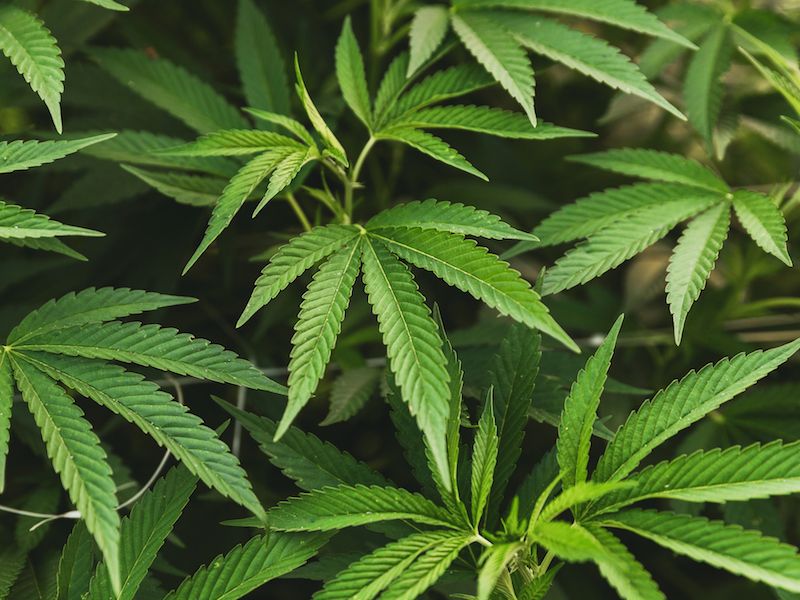
Public opinion surrounding cannabinoids and marijuana have transformed incredibly over the past several decades. Most states currently permit the use of marijuana, THC, or cannabinoid products for medicinal purposes. Ten or fifteen years ago it would have been unimaginable for marijuana to be legal for recreational usage but some states have even passed this law.
Cannabinoids are classified as a group of substances produced from the cannabis or marijuana plant. New things are being uncovered about cannabinoids every day in spite of their recent legalization in some states. We usually think of these particular compounds as possessing universal healing qualities, but current research reveals there may also be negative effects such as a strong connection between cannabinoid usage and the development of tinnitus symptoms.
Numerous Kinds of Cannabinoids
There are many varieties of cannabinoids that can be consumed now. It isn’t just weed (or ganja, or pot…..ok, there are lots of nicknames for marijuana so let’s move ahead). These days, THC and cannabinoids can be obtained in pill form, as lotions, as inhaled mists, and lots of others.
The forms of cannabinoids obtainable will vary state by state, and many of those forms are still officially illegal under federal law if the amount of THC is over 0.3%. So it’s still normal for people to be very cautious about cannabinoids.
The problem is that we don’t yet grasp much about some of the potential side effects or complications of cannabinoid usage. A good example is the new information about how cannabinoids impact your hearing.
New Research Into Cannabinoids And Hearing
Whatever you want to call it, cannabinoids have long been connected to helping a wide range of medical ailments. Vertigo, nausea, seizures, and more seem to be helped with cannabinoids, according to available anecdotal evidence. So scientists decided to find out if cannabinoids would be helpful with tinnitus, too.
Tinnitus may actually be triggered by cannabinoid use, as it turns out. Ringing in the ears was described by over 29% of participants after implementing cannabinoids. And that’s in individuals who had never dealt with tinnitus before. What’s more, marijuana users were 20-times more likely to report experiencing tinnitus symptoms after 24 hours.
And for people who already have tinnitus, marijuana use made it worse. So, it seems pretty certain that cannabinoids and tinnitus aren’t very compatible.
How Cannabinoids worsen tinnitus
Your tinnitus can be intensified by cannabinoids in a couple of tangible ways. First, the incidents of tinnitus symptoms can get more consistent, you might notice the buzzing or ringing in your ears more frequently. Also, your bouts of tinnitus can become more intense when you use cannabinoids. Louder ringing that can be harder to ignore can be the result.
The research also appears to suggest that cannabinoids are capable of causing the development of initial tinnitus symptoms. To put it a different way: if you didn’t have tinnitus before, you might develop tinnitus after you use cannabinoids.
The Causes of Tinnitus Are Unclear
Just because this connection has been discovered doesn’t necessarily mean the underlying causes are very well grasped. That cannabinoids can have an affect on the middle ear and on tinnitus is pretty clear. But what’s causing that impact is far less clear.
But we recognize that using marijuana, as opposed to other mood altering substances like alcohol, will cause tinnitus.
Research, undoubtedly, will continue. Cannabinoids nowadays come in so many varieties and forms that discovering the underlying connection between these substances and tinnitus could help individuals make smarter decisions.
The Miracle Cure Beware
There has certainly been no shortage of marketing hype surrounding cannabinoids recently. In part, that’s the result of changing perceptions about cannabinoids themselves (and, to an extent, is also an indication of a desire to go away from opioids). But cannabinoids can and sometimes do produce unwanted effects, based on this new research, and this is especially true concerning hearing.
You’ll never be able to escape all of the cannabinoid enthusiasts and evangelists out there, the marketing of cannabinoids has been especially assertive.
But tinnitus and cannabinoids are clearly linked based on this research. So if you suffer from tinnitus, or if you’re worried about tinnitus it might be worth steering clear of cannabinoids if possible, regardless of how many adverts for CBD oil you may encounter. The link between cannabinoids and tinnitus symptoms has been pretty firmly demonstrated by the research, so it’s worth exercising a little caution.